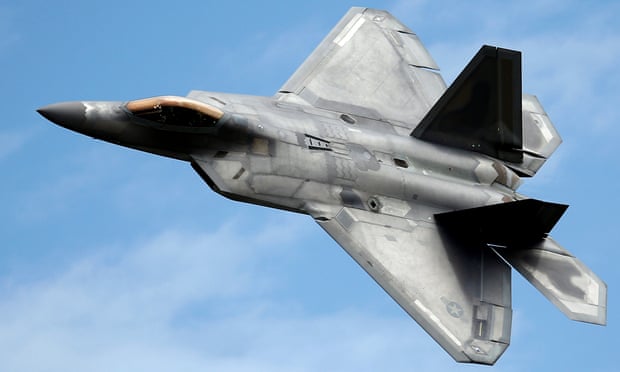July 14, 2016
Chinese thief of US military secrets given four years’ jail
 The F-22 fighter jet was one of the targets of Su Bin and a group of Chinese military hackers. Photograph: Peter Nicholls/Reuters
The F-22 fighter jet was one of the targets of Su Bin and a group of Chinese military hackers. Photograph: Peter Nicholls/Reuters
A Chinese businessman who admitted taking part in the hacking of US defence secrets has been given nearly four years’ jail.
Su Bin, 51, was convicted of taking part in a years-long scheme by Chinese military officers to obtain sensitive military information, targeting projects including the F-22 and F-35 fighter jets and Boeing’s C-17 military transport aircraft.
In addition to the 46-month prison term, a US district court judge in Los Angeles ordered Su to pay a $10,000 fine. Su also went by the names Stephen Su and Stephen Subin.
“Su assisted the Chinese military hackers in their efforts to illegally access and steal designs for cutting-edge military aircraft that are indispensable to our national defence,” said John Carlin, assistant attorney general for national security.
The Chinese government has repeatedly denied any involvement in hacking but the US says there is ample evidence.
But Su’s spying activities have been openly lauded in China where the state-controlled media has described him as a hero.
“We are willing to show our gratitude and respect for his service to our country,” said a March editorial in the Global Times, a nationalistic newspaper with close ties to the ruling Communist party.
“On the secret battlefield without gunpowder, China needs special agents to gather secrets from the US.”
In an August 2014 indictment, prosecutors said Su, who ran a China-based aviation and aerospace company from Canada, travelled to the United States at least 10 times between 2008 and 2014 and worked with two unidentified co-conspirators based in China to steal the data.
According to prosecutors, in pleading guilty Su admitted sending emails to his co-conspirators telling them which persons, companies and technologies to target with their hacking and translating the stolen material from English to Chinese.
Su admitted taking part in the crime for financial gain, prosecutors said.
Su was arrested in Canada in 2014 and ultimately consented to US extradition.
He pleaded guilty in March to one count of conspiring to gain unauthorised access to a protected computer and to violate the Arms Export Control Act.
No comments:
Post a Comment